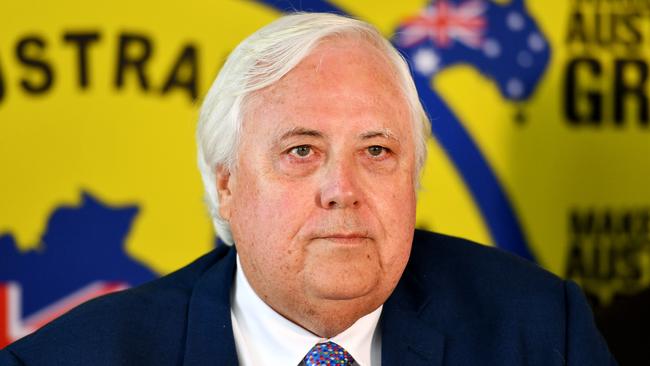Anti-Clive Palmer law like a juggernaut, says judge
The court has found WA’s retrospective legislation against Clive Palmer to be as destructive as a ‘juggernaut’.

A win by Western Australia in its $30bn legal battle with Clive Palmer has been tarnished after a judge compared the state’s extraordinary legislation against the billionaire to Rome’s razing of Carthage.
Queensland Supreme Court justice Glenn Martin on Wednesday set aside Mr Palmer’s registration of two critical arbitration awards previously made in his favour, a decision that was immediately heralded by WA Attorney-General John Quigley as major win for the state’s taxpayers.
The rejection of the registration could hurt Mr Palmer’s efforts to progress his $30bn damages claim against WA over the state’s breaches of its agreements with the billionaire’s private company, Mineralogy.
WA in August introduced retrospective legislation stripping Mr Palmer and his company of pursuing its legal actions against the state, prompting Mr Palmer to seek an urgent registration of the arbitration.
Mr Palmer said at the time that his registration of the awards meant it would make WA’s retrospective legislation unconstitutional, but that registration has now been set aside.
Justice Martin found that Mineralogy had erred in attempting to register the arbitration awards. He also found Mineralogy had “presented an inaccurate summary of the relevant law”.
But he took aim at WA over the legislation passed to kill off Mr Palmer’s legal claim, describing the law as a “juggernaut destroying everything in its path” and comparing it to Rome’s destruction of Carthage in 146BC. The city of Carthage was razed, the survivors were sold into slavery, and legends grew about the severity of the destruction.
“WA is not Rome. And Mineralogy is not Carthage. But the authors of the Iron Ore Processing (Mineralogy Pty Ltd) Agreement Amendment Act 2020 (WA) might be thought to have had the same level of obliteration in mind when that act was drafted,” Justice Martin said.



